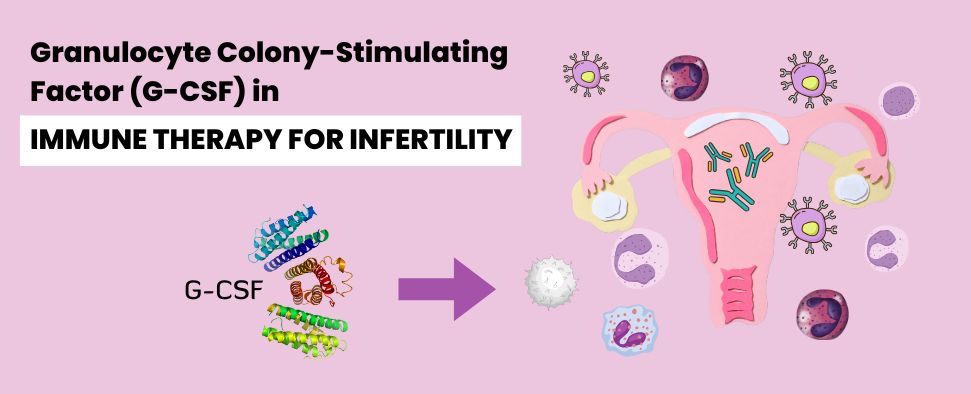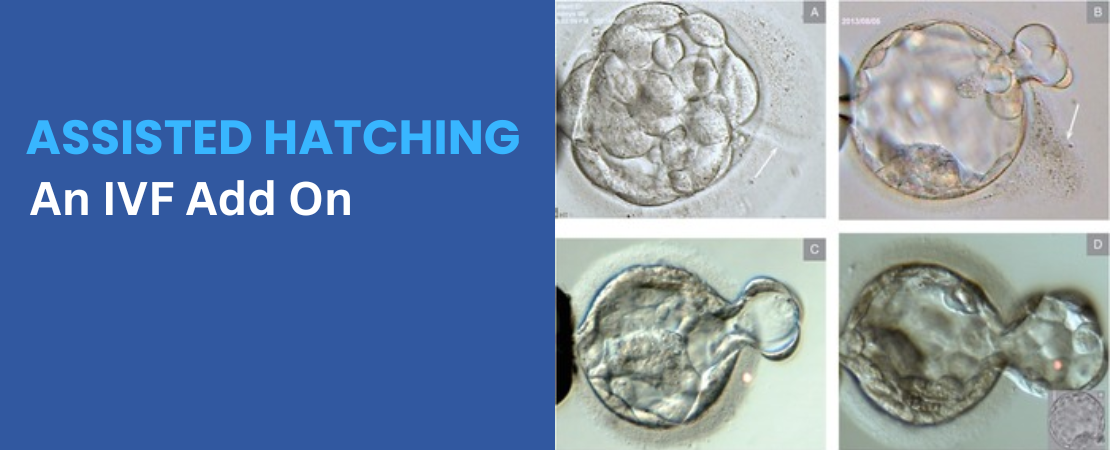
Immunotherapy with G-CSF (Granulocyte Colony-Stimulating Factor) for Infertility
If you are considering Immunotherapy with G-CSF for Infertility treatment, then this blog will provide you with all the insights and scientific evidences supporting Role of Granulocyte Colony-Stimulating Factor (G-CSF) in Immune Therapy. Granulocyte Colony-Stimulating Factor (G-CSF) is a glycoprotein that stimulates the production, maturation, and activation of neutrophils (a type of white blood cell) in the bone marrow. While it’s primarily used in oncology and hematology, its role in reproductive medicine has gained attention, especially in immune therapy for infertility.
Immunotherapy with G-CSF is used to address implantation failures, improve endometrial receptivity, and support immune modulation during fertility treatments like IVF.
Role of G-CSF in Fertility Treatments
1. Enhancing Endometrial Thickness
- Problem: Thin endometrium (less than 7-8 mm) is often associated with poor implantation rates and IVF failures. G-CSF can improve endometrial thickness by promoting cell growth and blood flow in the uterine lining, making it more receptive for embryo implantation.
- Mechanism: G-CSF recruits bone marrow-derived stem cells to the endometrium and enhances vascularization and tissue regeneration.
2. Improving Implantation Rates
- G-CSF influences the immune system to create a more favorable environment for embryo implantation. Hence, Immunotherapy with G-CSF is recommended for Infertility due to implantation failure
- It helps balance inflammatory and anti-inflammatory cytokines, preventing excessive immune reactions that may reject the embryo.
3. Modulating Immune Responses
- G-CSF regulates the activity of immune cells, including natural killer (NK) cells, which can interfere with implantation if overactive.
- It shifts the immune response to a more tolerant state, reducing the likelihood of the immune system attacking the developing embryo.
How G-CSF Is Administered in Fertility Treatments
a. Intrauterine Infusion
- G-CSF is infused directly into the uterine cavity.
- Typically administered during the follicular or early luteal phase in IVF cycles to improve endometrial receptivity.
b. Subcutaneous Injection
- G-CSF may also be given as an injection to modulate systemic immune responses.
Indications for Immunotherapy with G-CSF in Infertility
- Thin Endometrium: Women with persistent thin endometrium despite hormonal therapies.
- Recurrent Implantation Failure (RIF): Couples experiencing multiple IVF failures due to unexplained reasons.
- Unexplained Infertility: Patients with no apparent cause for infertility but suspected immune system involvement.
Research on Immunotherapy with G-CSF for Infertility Treatments
Studies on Endometrial Thickness
- Clinical studies have shown that intrauterine G-CSF can significantly increase endometrial thickness in women with thin uterine linings, improving their chances of successful implantation.
Success Rates in IVF
- Research suggests that Immunotherapy with G-CSF for Infertility treatment may improve clinical pregnancy rates in women with recurrent implantation failures or unexplained infertility.
Immune Modulation
- G-CSF has been observed to lower NK cell activity and inflammatory cytokine levels, leading to better IVF outcomes in immune-related infertility cases.
Advantages of Immunotherapy with G-CSF for Infertility Treatments
Non-Hormonal Therapy: Offers an alternative for patients unresponsive to hormonal treatments for thin endometrium.
- Dual Action: Enhances endometrial receptivity and modulates immune responses simultaneously.
- Improved IVF Success Rates: Boosts the chances of implantation and pregnancy, especially in difficult cases.
Potential Side Effects and Risks
- Immunotherapy with G-CSF for Infertility treatment is generally safe, but mild side effects can include:
- Fatigue.
- Flu-like symptoms (e.g., low-grade fever).
- Injection site reactions.
- Rarely, G-CSF can cause excessive white blood cell production, though this is uncommon in fertility treatments.
Conclusion
Granulocyte Colony-Stimulating Factor (G-CSF) has become a valuable tool in reproductive medicine. Immunotherapy with G-CSF for Infertility is effective for women facing challenges such as thin endometrium, recurrent implantation failure, or immune-related infertility. By enhancing endometrial receptivity and modulating immune responses, G-CSF offers new hope for couples struggling to conceive. However, its use should be carefully tailored to individual cases and monitored by fertility specialists.
References:
- The role played by granulocyte colony stimulating factor (G-CSF) on women submitted to in vitro fertilization associated with thin endometrium: systematic review https://pmc.ncbi.nlm.nih.gov/articles/PMC7365529
- Role of granulocyte colony-stimulating factor in human reproduction https://pmc.ncbi.nlm.nih.gov/articles/PMC5813296/#:~:text=Abstract,endometrium%2C%20and%20recurrent%20spontaneous%20abortion.
- Intrauterine G-CSF in IUI cycles for women with thin endometrium may improve endometrial thickness and pregnancy rates: A randomized controlled study https://www.sciencedirect.com/science/article/abs/pii/S0377123723002125
- G-CSF Intrauterine for Thin Endometrium, and Pregnancy Outcome https://pmc.ncbi.nlm.nih.gov/articles/PMC4662753/

